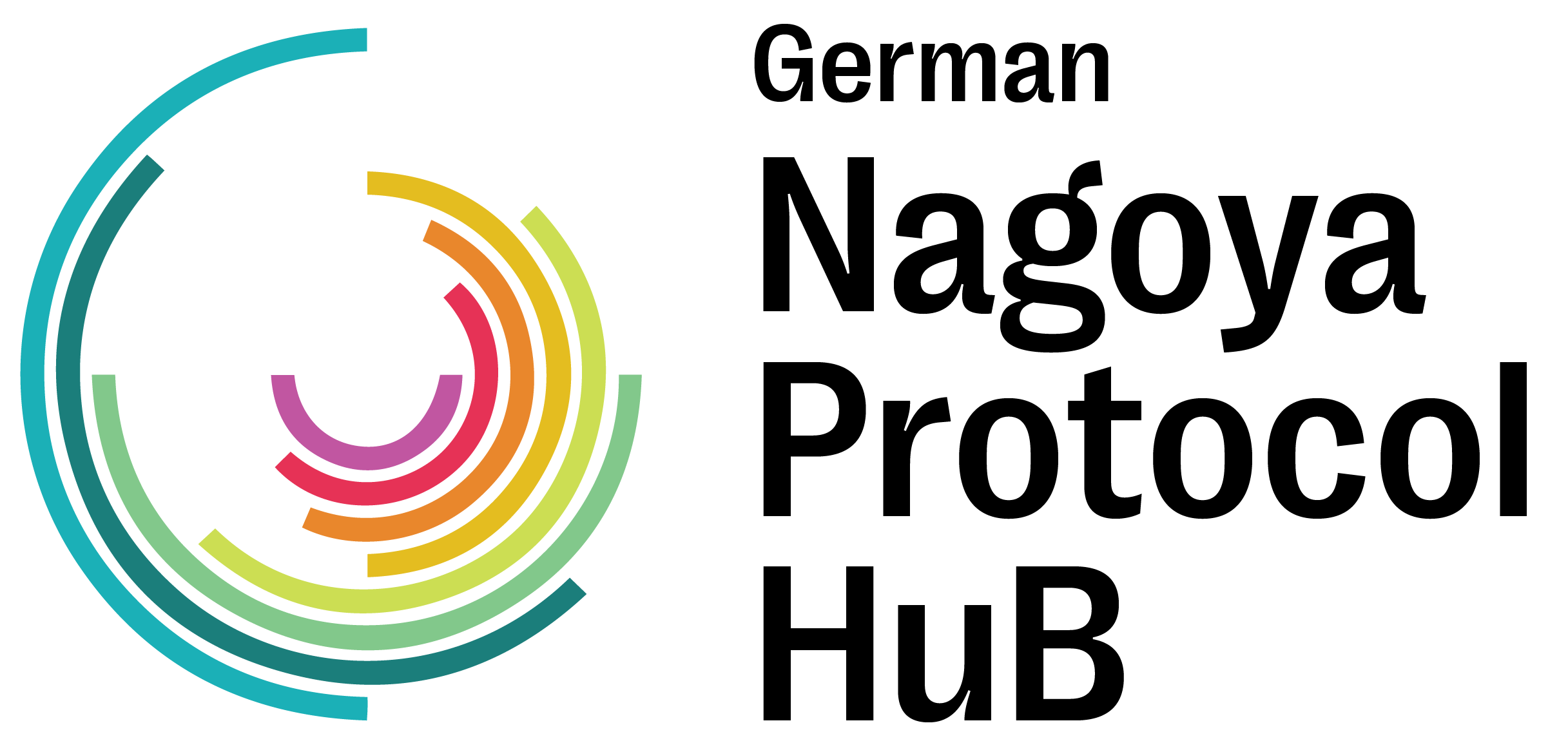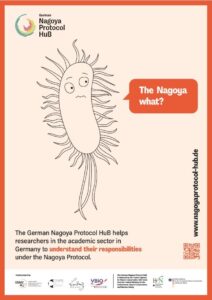Reports from our events
Workshop Reports
Here you can find all the reports from the German Nagoya Protocol HuB workshops.
1st German Nagoya Protocol HuB Workshop – June 2020
The first GNP HuB workshop was held in June 2020. The aim of this workshop was to:
- raise awareness among the participants about the project
- gain a better understanding of the experiences of the participants with ABS and their compliance obligations in the EU
- know which information sources and tools they already use and which resources and tools may be needed
- gain insight into how to communicate strategically with the scientific community about Nagoya Protocol compliance
You can find the final report here.
2nd German Nagoya Protocol HuB Workshop – July 2022
The GNP HuB project held a workshop with project partners and Network members. The main objective was to share ideas for the future materials and activities to be developed by the project to
- Provide support for the user community
- Create innovative solutions and instruments for ABS
- Strengthen the ABS user community
Check out the final report here.
Reports from the regular meetings of the GNP HuB Network (Stammtisch)
Here you can find reports from meetings of the German Nagoya Protocol HuB Network (the “GNP HuB Stammtisch”).
Report of the 1st GNP HuB Network Meeting (Stammtisch) – September 2020
At this meeting, we launched the network and had a quiz about common questions on compliance in the European Union. Read the report here.
Report of the 2nd GNP HuB Network Meeting (Stammtisch) – December 2020
At this meeting, we exchanged on the Nagoya Protocol and what it means for document and sample management. Read the report here.
Report of the 3rd GNP HuB Network Meeting (Stammtisch) – March 2021
At this meeting, we focussed on dealing with practical ABS challenges. Read the report here.
Report of the 4th GNP HuB Network Meeting (Stammtisch) – September 2021
At this meeting, we simulated an ABS negotiation process together with the Taxon-Omics priority program. Read the report here.
Report of the 5th GNP HuB Network Meeting (Stammtisch) – December 2021
At this meeting, we talked about Digital Sequence Information (DSI) and the current state of international negotiations on the issue. Read the report here.
Report of the 6th GNP HuB Network Meeting (Stammtisch) – March 2022
At this meeting, we talked about the work of the German Research Foundation (DFG) and the experiences with the new DFG Guidelines. Read the report here.
Report of the 7th GNP HuB Network Meeting (Stammtisch) – June 2022
At this meeting, we talked about setting up Information Technologies (IT) systems for ABS and compliance, challenges and possible ways to move forward. Read the report here.
Report of the 8th GNP HuB Network Meeting (Stammtisch) – October 2022
At this meeting, we talked about international policy updates on ABS. Read the report here.
Report of the 9th GNP HuB Network Meeting (Stammtisch) – February 2023
At this meeting, we talked about the biggest achievement during COP15. Read the report here.
Report of the 10th GNP HuB Network Meeting (Stammtisch)- June 2023
At this meeting we shared real experiences on ABS in African countries. Read the report here.
Other events
EU ABS Networking Event – 14 June 2021
On Monday, June 14, 2021 from 2-4:00 p.m. CEST, the German Nagoya Protocol HuB hosted an online EU ABS Networking Event together with the European Marine Biological Resource Centre, the Union for Ethical Biotrade, ABS-int, Dutch ABS National Focal Point (hosted by Wageningen University and Research), and the Natural History Museum London.
The event focused what has been done to support users with access and benefit-sharing (ABS) and compliance requirements, what is working well and what is left to be done. The report from this event can be found here.
Here you can download a copy of the impulse presentations (pdf) by Elizabeth Karger (Web-based resources and direct user support for academic researchers), Chris Lyal (Institutional implementation & best practices) and Valerie Normand (ABS resources for business and industry and the UEBT approach to ABS).
Publications
Here you can find a publication in Trends in Biotechnology from the Leibniz Institute DSMZ-German Collection of Microorganisms and Cell Cultures “DSI, the Nagoya Protocol and Stakeholders’ concerns”.
Here you can find a contribution to the GfBS Newsletter (39-202) (in German only): Das Nagoya-was? Warum „Nichtwissen“ über das Nagoya-Protokoll, Zugang und Vorteilsausgleich und die Verordnung (EU) Nr. 511/2014 nicht mehr ausreicht.
Communication materials
Here you can download our flyer and our posters. If you are interested in having hard copies of these materials sent to your institute or university, just contact us.





